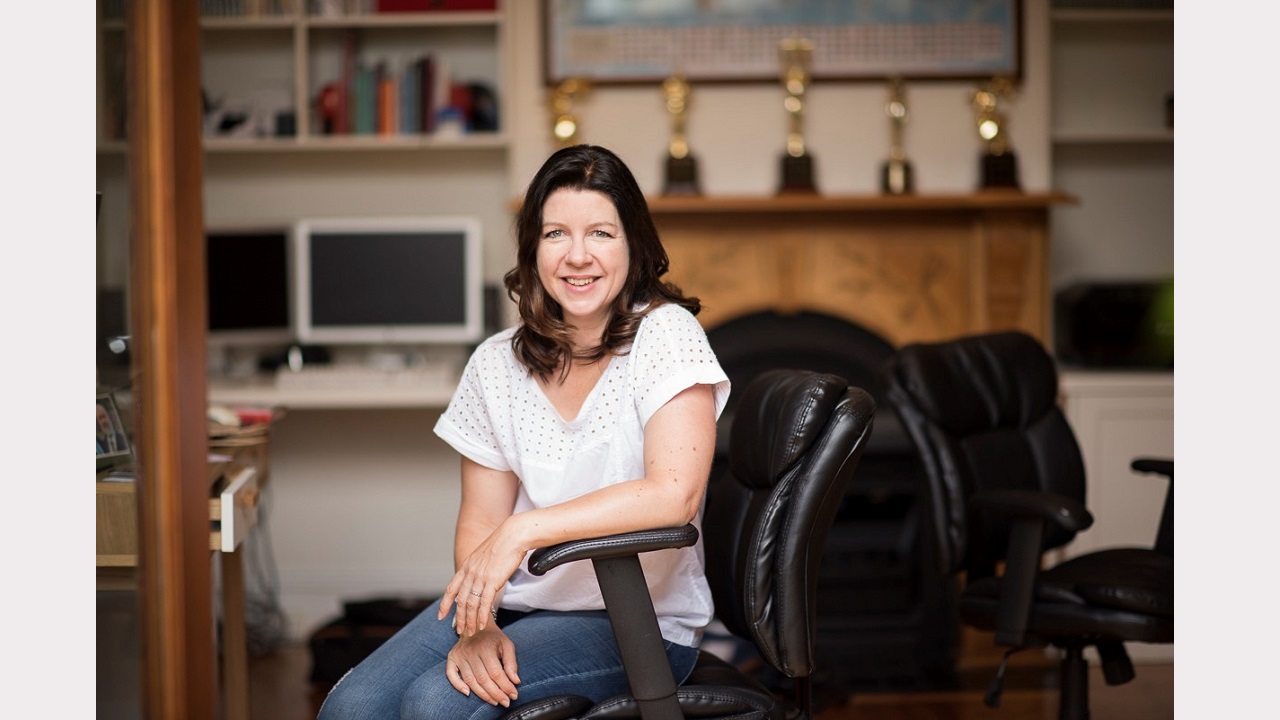Sue Collins is dying to talk

Award-winning filmmaker, Sue Collins, is head of production at Moonshine Movies. Her multi-award winning productions include Little Stars, a documentary about children’s palliative care, and LIFE Before Death.
Below, Sue answers questions from the Dying to Talk Discussion Starter. For support in starting the discussion with your loved ones, download it from www.dyingtotalk.org.au
If you had a condition that you could not recover from, what would be important to you, towards the end of your life?
My children are still very young and I think I would be most concerned that they would be well looked after and that they had a good understanding of why I would not be in their future. I hope that I would have opportunity to spend time with loved ones. I think the hardest part would be knowing I would miss out on so much and I hope I would find a way to make peace with that.
Are there any pets that you would like to see or be with you, if this is possible?
I have a beautiful pug named Doug. I’ve had him since he was a tiny puppy and now he’s 11 years old. He sleeps in my boys’ bedroom and snores like a freight train, but since he’s always slept in their room they feel safe with him there.
Folk law is that pugs are from the Ming Dynasty and were bred as feet warmers for their masters. I believe this, as Doug is always trying to sit on my feet, or anyone else’s. This is very lovely except when you want to place your new born baby on a rug on the floor, but can’t because the dog will sit on him!
If it were if possible I’d like Doug with me, as I think it would be comforting to hear his little snuffle.
Would you prefer a quiet environment or do you prefer activity and chatter around you?
I usually prefer quieter, more intimate environments, so I guess this would be the preference. I don’t do well in big crowds with loads of noise. I’d probably want to avoid large groups surrounding me or loud music.
Would you like music to be playing and if so, what style or what music?
I’m not especially musical and my taste is varied but I’d prefer some music. Spotify hates me and I can never get it to work or find a play list that I like, but I do have a favourites play list on my iTunes that I created. That would probably be best. It’s a weird mix of ’80s rock, pop, classical and random songs.
If possible, would it be important to you to have time outside?
Yes, I love outdoors and usually prefer to have windows that open. I’m an inner-city Melbourne girl but with the kids it means we are almost always heading to a park on the weekends or to the Royal Botanic Gardens.
Would you prefer to be surrounded by lots of family and friends, or would you prefer one or two closest people to be with you?
I’d want my kids and husband, but beyond that I’m not sure. In my final hours I don’t think I’d mind how many people wanted to visit. At that point it would be more about friends and wanting to say goodbye so I don’t think I’d limit it.
What is on your bucket list of things you would like to do or achieve before you die?
At the moment I’m happy watching my children grow. They are so young so it’s a pretty amazing time in their development. I’d like to experience as much of them growing as possible I guess. I’m not sure that’s a bucket list aspiration or just something that brings me a good deal of pleasure.
How did you feel during the process of answering these questions?
Having seen so many situations over the past few years through my work in documentary, filming palliative care stories around the world, I’ve had a good deal of time to think about end-of-life and experienced other people’s journeys.
One that has always stayed with me was a mother living with cystic fibrosis, who had to come to terms with the idea that she would not be there for her teenage son’s future.
She died at age 34 and it really solidified for me that it’s relationships that are most important; relationships with your family and friends and also the relationship you have with yourself.
A recent trip to Sri Lanka also pulled into sharp focus just how lucky we are in developed countries to have the standard of care we have, and how much we take it for granted.
People in a large cancer ward were in cot beds, lined up next to one another in blistering heat and humidity with no air conditioning. These people were so sick and just surviving each moment. That was very hard to see. None of these people were getting a final wish or quality time with family. And this is the situation in much of the world. To be answering questions about how I’d like my life to end really seems like such a luxury and one I am grateful to have.
